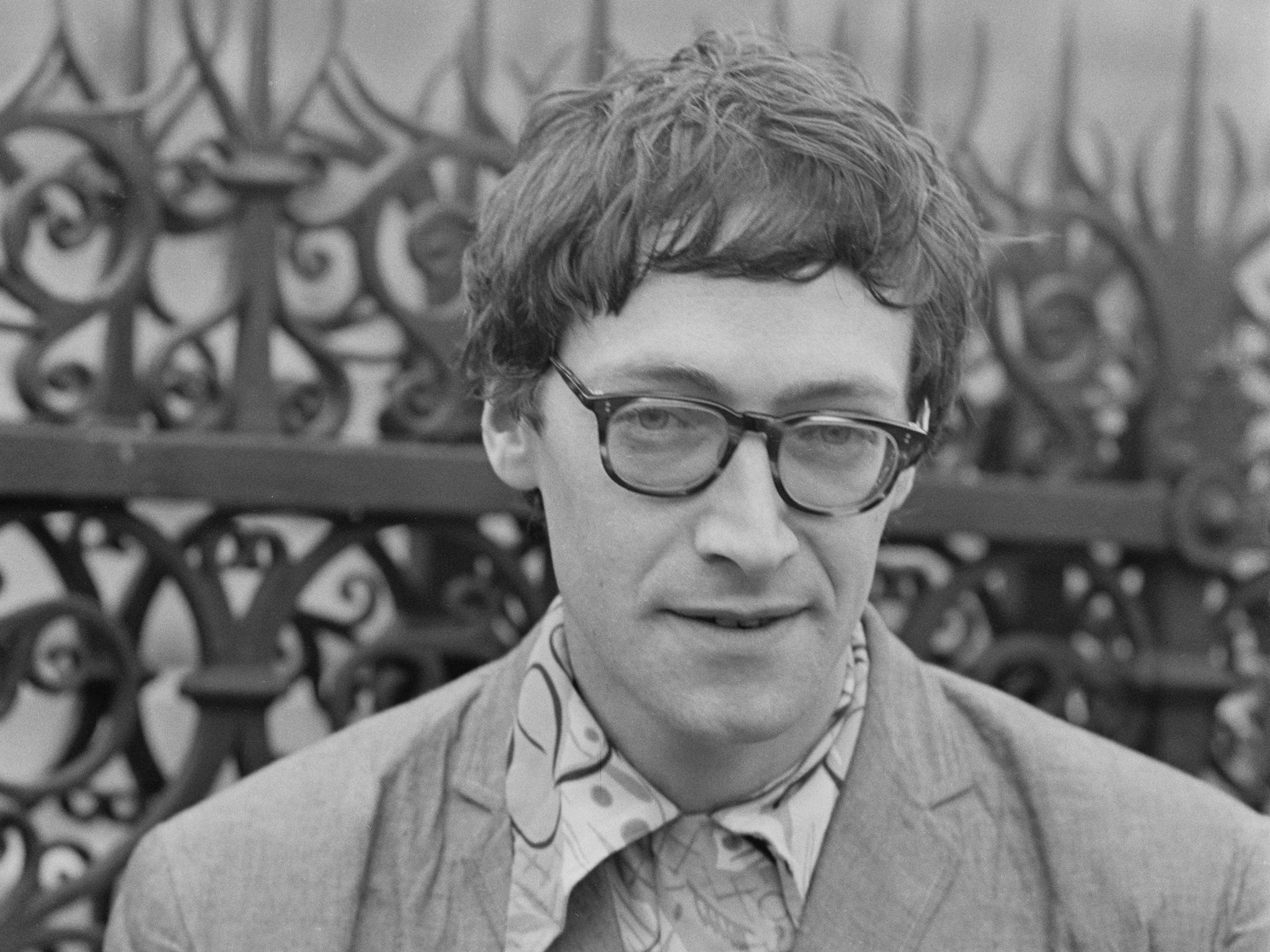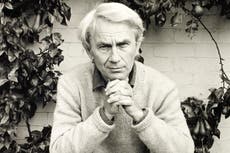Michael Horovitz: Poet who brought the written word to life
Horovitz was a key literary figure in the British counterculture movement of the Sixties

Michael Horovitz, who has died aged 86, was a poet and publisher, a painter, performer and promoter, a troubadour and spiritual descendant – in words and in images – of William Blake.
Perhaps his greatest achievement – and one that he sought to emulate and recreate throughout the rest of his long and productive life – was his work in co-organising the International Poetry Incarnation, a literary phenomenon at the Albert Hall on 11 June 1965. The event brought together a star cast, including the American Beat generation poets Allen Ginsberg, Lawrence Ferlinghetti and Gregory Corso, together with British and European poets such as Adrian Mitchell, George MacBeth and Ernst Jandl.
An audience of some 7,000 people flocked to Kensington Gore for the readings and ensuing party, now seen as a cultural high point of the Sixties, heralding the arrival of hippy culture to Britain. The film Wholly Communion by Peter Whitehead remains testament to that event and shows Horovitz in full flow, reading to the gathered crowds.
Horovitz was born in Frankfurt in 1935, the youngest of 10 children of Rosi and Dr Avraham Horovitz, descended, as he put it “from cantors, rabbis, vintners and Chasidim of Hungary, Czechoslovakia and Bohemia”. His family emigrated to Britain when Michael was two, escaping the rise of Nazism in Germany. He was educated at William Ellis School in north London and Brasenose College Oxford, where he read English.
While at Oxford in the late Fifties he would hitch his way down to London for jazz concerts. At one gig the young Horovitz was told by Dizzy Gillespie that he “resembled early pictures of Christ”. He later commented that it “felt kosher to be scruffy; longhaired & straggly-bearded ever since”.
Recognising the upswell of interest in poetry following the International Poetry Incarnation, Penguin commissioned Horovitz to edit Children of Albion: Poetry of the Underground in Britain, published in 1969. Founded a decade earlier while at Oxford, his New Departures literary periodical provided a platform for poets who might not otherwise find an outlet for their work.
His later anthology, Grandchildren of Albion (1992), with an accompanying CD, championed a new generation of younger and more diverse poets and writers. The performance poet and musician, Attila the Stockbroker, remembered him as “an absolute hero of performance poetry. A massive help to this young punk poet in early 1980s” and went on to say, “I will never forget his generosity of spirit”.
My first contact with Horovitz involved our shared passion for the poetry of Kenneth Patchen. We met at the Albert Hall in July 1996 for his Superjam event and were later involved with events at Tate Britain – organised by Barbara Read – and Brighton Festival, with readings from Patchen’s widow, Miriam, and Lawrence Ferlinghetti. I went on to help a then somewhat technophobic Horovitz make tentative steps to bring his Poetry Olympics literary festival project to the Internet.
A visit to his Notting Hill flat was a revelation: piles of newspapers, cuttings and books – his own and so many others – the archive of a lifetime’s work. He had latterly made appeals for help with storage to handle so many years of literary annals.
He was not one for the fusty academic world of poetry. As well as his close friendships with poets, Horovitz enjoyed collaborations with rock stars including Paul McCartney, Damon Albarn and Patti Smith, who brought their own forms of poetry alive, as lyrics in music. At his unforgettable Superjam event in 1996, Kylie Minogue read “I Should be So Lucky” as a spoken-word poem to an amused and delighted audience. And Horovitz’s preferred musical accompaniment to his own readings was a kazoo-like “AngloSaxophone”, as he termed it.
Horovitz was an accomplished visual artist. The poet and artist Jeff Nuttall said of his work: “He paints as he writes and performs, in dancing gestures, with sufficient acumen to recognise a possible total intensity of pigment, colour and recorded motion, in time to pin it down and emphasise it, so that the work crackles with energy instead of merely using it up.” An exhibition of his paintings had opened at the Chelsea Arts Club just a day before his untimely death.
He published more than a dozen books of poetry and edited eight anthologies of works by others. His magnum opus is A New Waste Land: Timeship Earth at Nillennium (2007), an ambitious graphical and textual work that rages at a Blair-led warmongering government and laments mankind’s destruction of the world. DJ Taylor, writing in The Independent, described it as “a deeply felt clarion-call from the radical underground”.
Horovitz had himself contributed to this newspaper on several occasions, including reflections on his friendship with Beryl Bainbridge, and an obituary of his friend Inge Laird.
He married the poet Frances Hooker in 1964 and they were together until their divorce in 1980. She died in 1983. He is survived by their son Adam Horovitz, a performance poet.
Michael Horovitz, poet, editor and publisher, born 4 April 1935, died 7 July 2021


Bookmark popover
Removed from bookmarks